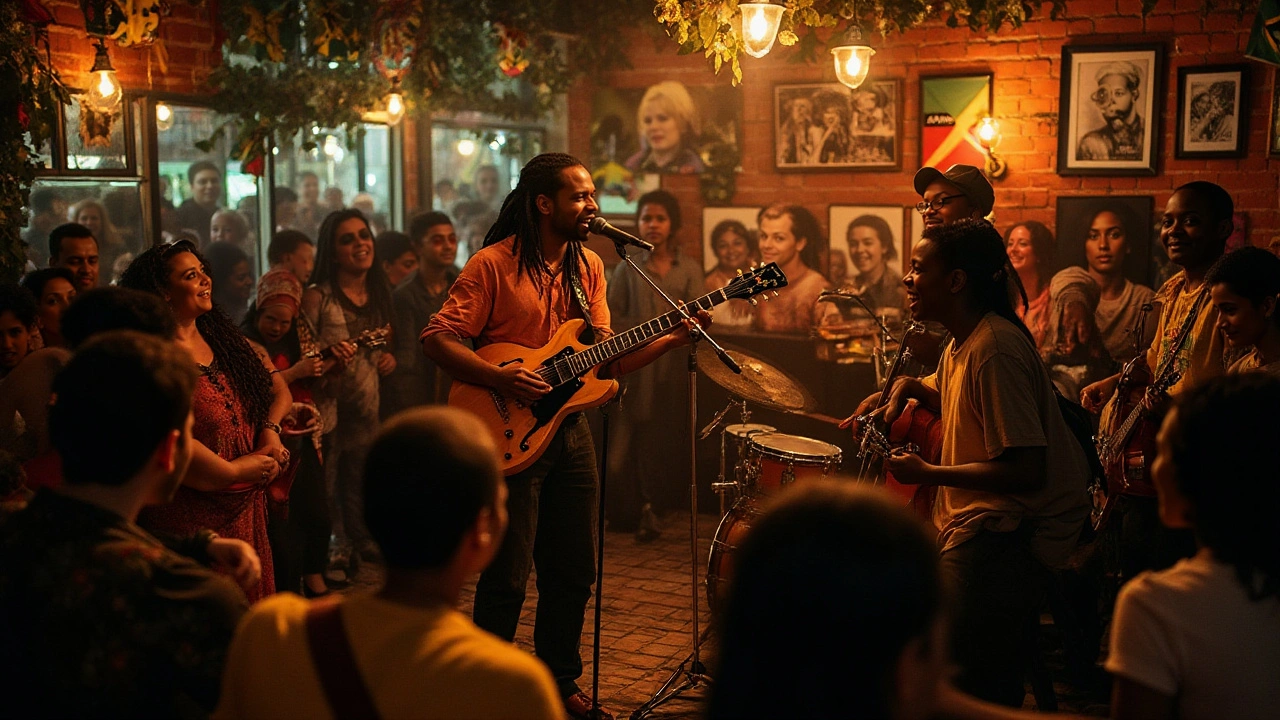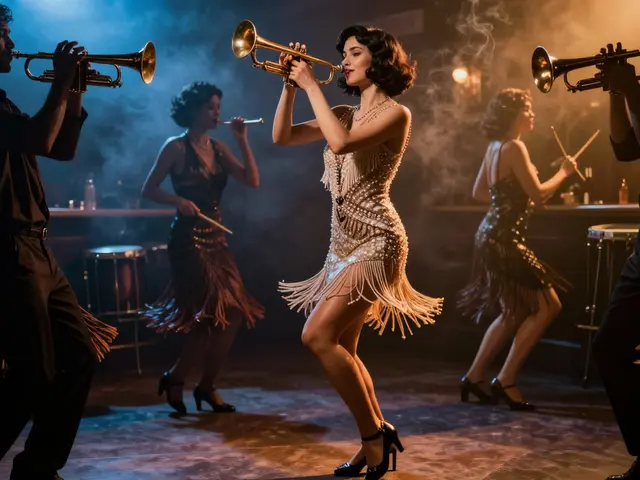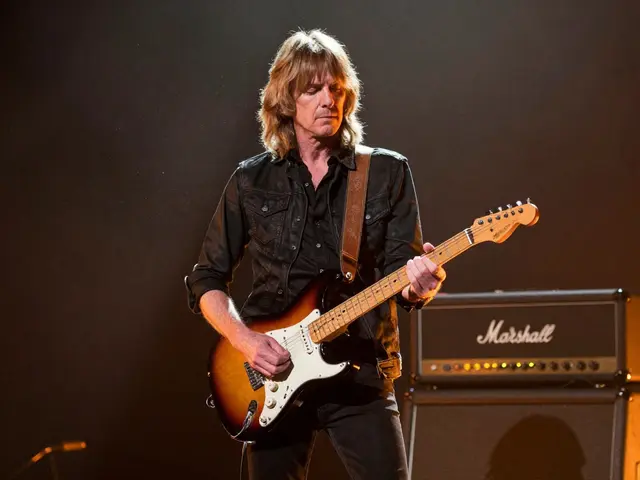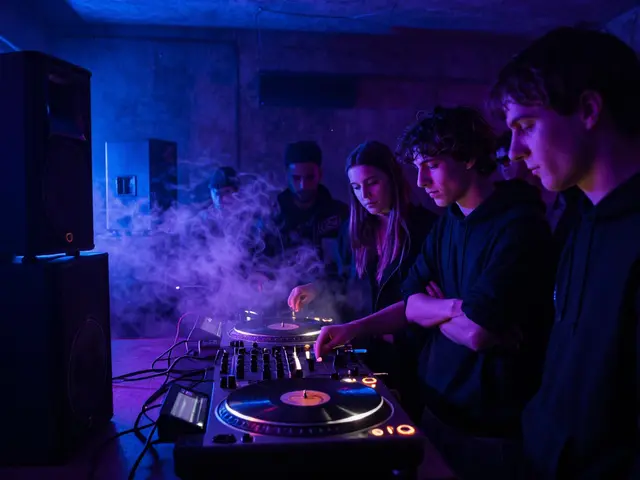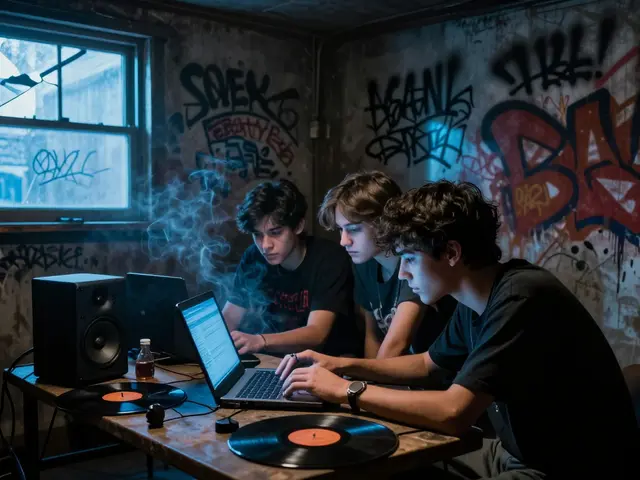Nurtured under the Caribbean sun, reggae emerged from the vibrant Jamaican landscape as more than just a musical genre; it encapsulated the heartbeat of a movement. Born from a blend of traditional mento, American jazz, and R&B, reggae grew into a beacon for social change, challenging the status quo through its powerful rhythms and impactful lyrics.
Reggae is synonymous with freedom and rebellion, creating anthems that speak against oppression and celebrate life’s simplicities. Its sound is unmistakable, characterized by offbeat rhythms and smooth, soulful vocals that call for reflection and action. Throughout history, icons like Bob Marley and Peter Tosh didn't just entertain; they awakened a generation, urging them to stand tall against injustice.
In this exploration of reggae's unyielding spirit, we'll delve into its origins, celebrate the artists who've shaped its legacy, and understand how this island sound transcended borders to influence cultures worldwide. For enthusiasts and newcomers alike, reggae invites listeners to connect with its heartbeats of defiance and dreams.
- The Origins of Reggae
- Key Figures in Reggae History
- Reggae’s Role in Social Movements
- Reggae’s Global Influence
- Listening Tips for Reggae Enthusiasts
- Exploring Contemporary Reggae Artists
The Origins of Reggae
In the sultry milieu of late-1960s Jamaica, amid the backdrop of a newly independent nation, a sonic revelation took form: reggae music. Its roots were deeply entwined with the preceding genres of ska and rocksteady, but it carved its distinctive path with slower tempos and syncopated rhythms that echoed the heartbeat of the Jamaican populace. The synthesis of these sounds was not only a product of cultural fusion but also a reflection of the social and economic conditions of the time, where music became a powerful vehicle for both personal expression and communal solidarity.
The origins of reggae can be traced to the Trench Town neighborhood of Kingston, a vibrant hub known for its prolific creativity despite economic hardships. It was here that innovative musicians like Toots Hibbert of Toots and the Maytals coined the term 'reggae' with their 1968 hit “Do the Reggay,” defining a new genre that resonated with both the disillusioned and the hopeful. Reggae's burgeoning sound was characterized by its ‘one drop’ rhythm, a term describing the emphasis on the third beat of each measure—lending reggae its laid-back, yet compelling, groove.
Significant to reggae’s emergence was the spiritual and political pulse provided by the Rastafarian movement, which embraced reggae as an aural emblem of its values—calling for repatriation to Africa, advocating for peace, and condemning materialism and social injustice. This ideological marriage between music and movement was reflected in the lyrics that often spoke to themes of freedom and resistance. In reggae, music was more than entertainment; it was a call to action, a balm for social wounds, and an aspirational anthem for the marginalized.
During these formative years, Reggae’s exposure beyond the island’s shores was catapulted by record producers like Lee “Scratch” Perry and music pioneers like Leslie Kong. They recognized reggae’s potential to transcend cultural and geographical boundaries, pressing records that traveled across the Atlantic, evoking a global intrigue that began to solidify reggae’s place in international music halls. In an interview with The Guardian, Marley once reflected,
"Reggae music deals with what life brings, cleans out the open wounds and helps us look ahead with clearer vision."Such influencers were instrumental in transforming reggae into a cultural phenomenon that has left an indelible impact on music history.
Key Figures in Reggae History
The pulsating world of reggae music is populated by legends whose rhythms and words have traversed time and space, leaving indelible marks on the global soundscape. Perhaps the most iconic of them all is Bob Marley. Born Robert Nesta Marley, he rose from humble beginnings in Jamaica to become a universal symbol of peace and rebellion. His profound lyrics, woven with themes of unity and freedom, inspired millions. Songs like "Redemption Song" and "One Love" have become global anthems, advocating for social justice and common humanity. Marley wasn't just a musician; he was a visionary, and his concerts were often spiritual gatherings that preached love and resistance.
Alongside Marley stands Peter Tosh, whose razor-sharp wit and daring proclamations reshaped reggae's sphere. Tosh's commitment to speaking truth to power reverberates through classics like "Legalize It" and "Equal Rights." Known for his militant stance, he fearlessly addressed issues like racial injustice and governmental oppression while urging listeners to rise in defiance. Tosh's voice was one of the rawest in reggae, reflecting the urgency of his messages with a ferocity that demanded attention.
"The greatness of a man is not in how much wealth he acquires, but in his integrity and his ability to affect those around him positively." — Bob Marley
An equally crucial figure in the reggae tapestry is Jimmy Cliff, whose melodic resilience has dazzled audiences for generations. His hit "The Harder They Come" not only broke international barriers but also infused the global consciousness with a taste of Jamaican culture. Cliff's ability to blend reggae with pop elements illustrates the genre's adaptability and reach.
Beyond these titans, the reggae realm thrives with contributors like Burning Spear, whose spiritual rhythms underscore a deep connection with African roots. This connection made reggae an essential voice during the fight against apartheid in South Africa. Bunny Wailer, a founding member of The Wailers, infused reggae with a rich tapestry of Rastafarian themes, echoing the beliefs of spirituality and liberation through tracks like "Cool Runnings." His understanding of reggae as a tool for cultural education resonates throughout his work.
Yet, it isn’t just the vocalists who trailblaze in reggae's global influence. Instrumentalists like Augustus Pablo transported listeners with his ethereal melodica tones, transforming reggae into a dreamy escape filled with contemplative spaces. His contributions to dub music created dimensions within reggae that continue to captivate and inspire artists worldwide.
Today's reggae scene still pulsates with the impact of these pioneers, reverberating through every chord hit and verse sung. Each has contributed to a vibrant tapestry woven with a message of freedom and transcendence, ensuring reggae remains a genre not just heard, but deeply felt, challenging and inspiring new generations to write their own chapters within this powerful narrative.
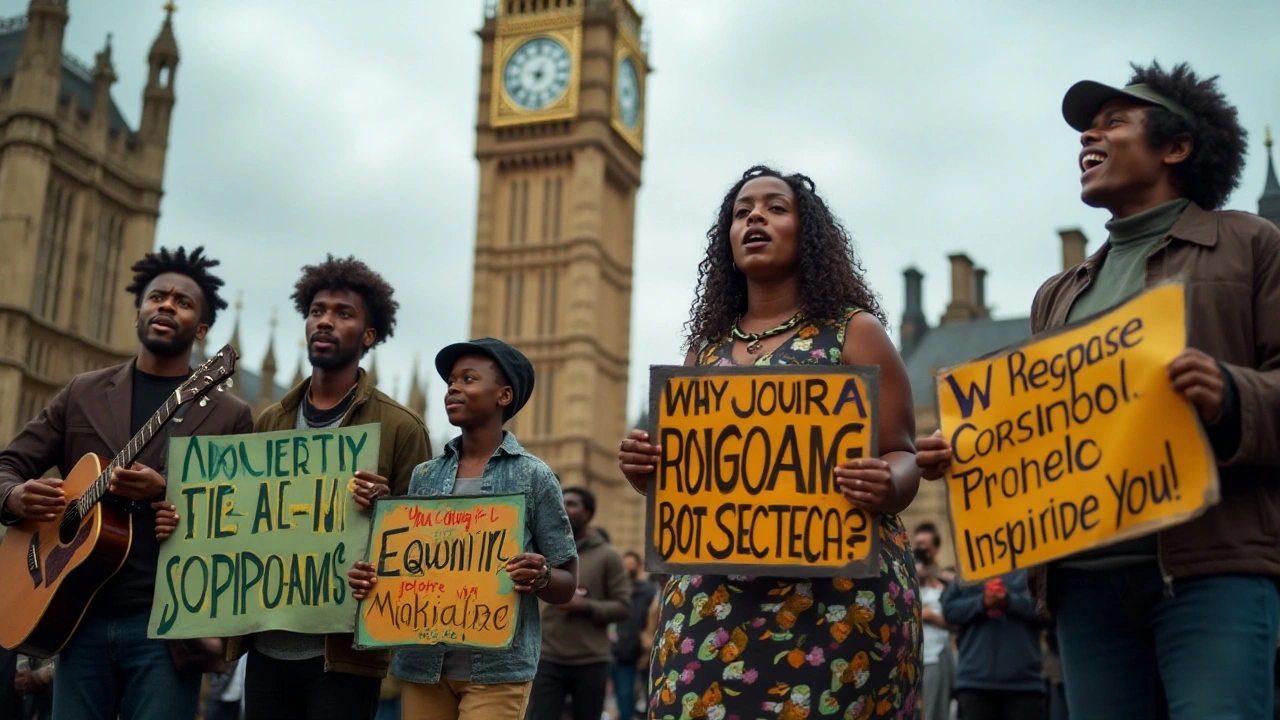
Reggae’s Role in Social Movements
Reggae music and its intrinsic message of freedom and rebellion have long been intricately woven into the fabric of social movements around the globe. This powerful music genre, emerging from the streets of Jamaica in the late 1960s, found itself a voice for the oppressed and a rallying cry for change. The country's tumultuous political landscape during that era provided fertile ground for reggae to articulate the struggles of the underrepresented. Artists didn't shy away from using their music to speak candidly about social justice, laws, and human rights, creating a hymn for resistance and a vehicle for advocating equality.
At the forefront, legendary Bob Marley harnessed the power of reggae to magnify the voice of socio-political movements. His songs, like “Get Up, Stand Up” and “Redemption Song,” became anthems for change, resonating with those fighting battles against socio-political oppression globally. Reggae's rhythmic patterns and soulful melodies wrapped around hard-hitting lyrics offered a dual experience of musical enjoyment and thoughtful provocation. It wasn't long before these melodies crossed borders, igniting movements far beyond Jamaican shores. “The music has a potency,” Marley once emphasized, capturing the heart of its international reach and influence.
This global resonance was further amplified by reggae's alignment with Rastafarian beliefs, which naturally favored social and spiritual upliftment. The Rastafari movement, a cultural and social phenomenon originating in Jamaica in the 1930s, emphasized themes such as liberation and empowerment, which reggae artists have passionately echoed throughout the decades. This interrelation cemented reggae's status as a musical mouthpiece for marginalized communities seeking freedom and dignity.
“Reggae music is the people’s music,” said noted anthropologist Robert Farris Thompson. “It finds its roots among the oppressed, giving them a musical forum which inevitably calls for unity and resolve.”
Reggae’s influence can also be seen in how it inspired movements around the world. Songs demanding racial equality and an end to apartheid resonated in South Africa, while in the UK, reggae became the soundtrack for anti-racism and social justice campaigns in the 1970s and 1980s. As reggae thrived, it developed into a unifying force across diverse cultures, speaking a universal language of love and protest. In the process, it drew attention to issues that might otherwise have remained unheard, reinforcing its position as a powerful catalyst for societal transformation.
Today, modern reggae artists continue to draw inspiration from the genre's rich past, infusing their music with messages that address contemporary issues. They carry the torch lit by their predecessors, reminding us that the fight for justice is ongoing. In this way, reggae remains a living, breathing expression of resistance—a dynamic testament to the enduring struggle for equality and freedom worldwide.
Reggae’s Global Influence
When the hypnotic sounds of reggae music spilled out from the island shores of Jamaica, they carried with them a message that would reverberate across the globe. This genre, at its core, embodies a call for freedom and unity, resonating deeply with people everywhere. What began in the cultural ferment of Kingston’s creative communities swiftly transcended into an international sensation, drawing fans from every corner of the earth. The influence of reggae is clearly visible in various international music styles, from the vibrant beats of reggaeton in Latin America to the ska and punk movements in Britain. This powerful cultural export speaks a universal language of hope and defiance, inspiring legions to dance, reflect, and continue the struggle for justice.
In the 1970s, Bob Marley, the genre’s most iconic ambassador, ignited the global stage, his messages of love and unity striking a chord far beyond Jamaica’s borders. He took reggae into venues and homes in the United States, Britain, Africa, and beyond, performing tracks such as "Get Up, Stand Up" and "No Woman, No Cry" which became anthems for oppressed communities and symbols of resistance. Marley's music had significant political undertones, often serving as a rallying cry for change and empowerment. The impact was so palpable that Marley's records are sometimes credited with contributing to an awakening among African leaders during the struggle for independence. Perhaps no other form of music has so seamlessly blended a catchy rhythm with a compelling social message.
Globally, reggae festivals from Brazil’s Rototom Sunsplash to California’s Sierra Nevada World Music Festival showcase this genre’s vast appeal. These gatherings support an ever-growing network of musicians, enthusiasts, and activists, united by the reggae rhythm. Such events aren’t just about the music; they serve as a platform for conversations about peace, sustainability, and social justice. The presence of reggae in places like Japan and New Zealand, with passionate local ska and reggae bands, underscores its adaptability and universal appeal. Even in culturally distinct settings, reggae has managed to intertwine with local traditions, creating unique fusions that celebrate diversity while staying true to its roots.
In a way, reggae serves as a reminder of music’s powerful role in cultural exchange and social activism. It’s a bridge that connects distant worlds, encouraging dialogue and unity. Through its unyielding beats and egalitarian ethos, reggae continues to inspire new generations of musicians and activists to carry its message forward. As one moves around the world, the pulse of reggae is felt in clubs and street corners, proof that its call for freedom and rebellion is as relevant now as it was at its inception.
"Reggae, for me, is more than music. It is a cultural weapon that breaks down barriers, builds bridges, and inspires change." – Ziggy Marley
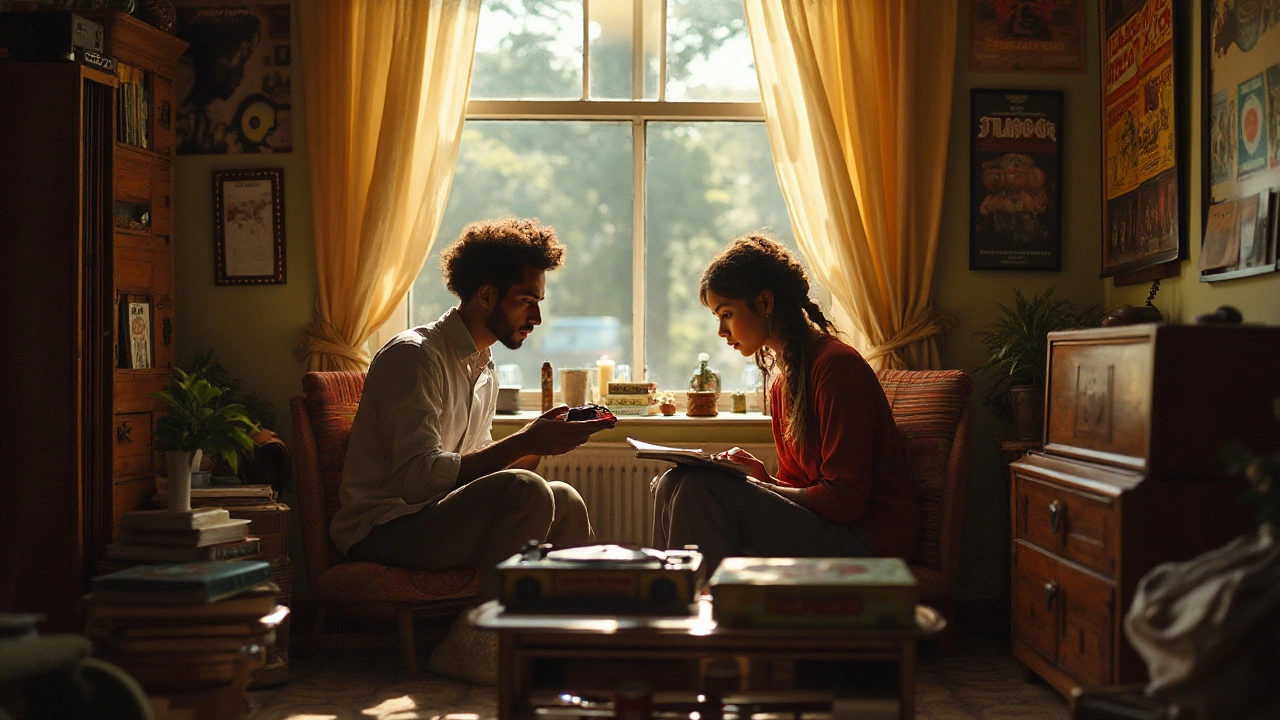
Listening Tips for Reggae Enthusiasts
Diving into the world of reggae music can transform a mere listening session into an enriching cultural experience. To truly get the best out of reggae, it's important to recognize its roots and the power behind its beats. Start by immersing yourself in the classics, where legends like Bob Marley, Burning Spear, and Jimmy Cliff establish themselves as pioneers not just of a sound, but of a movement. Each song is a window into the historical pulse of Jamaica, capturing struggles for freedom and the unyielding spirit of rebellion.
When exploring reggae, consider the themes that dominate its literature. Lyrics often revolve around love, political change, and social consciousness, offering a narrative that is both reflective and resonant. It helps to approach each listening session with a mind open to the stories told through rhythm and verse. Developing a contextual understanding is crucial; reggae isn't just music for entertainment, it’s a journal of experiences and aspirations. As the saying goes in the reggae community, "When the music hits, you feel no pain,"—echoing reggae's ability to touch deeply without harm.
Tune into live reggae performances whenever possible. Experiencing reggae in a live setting amplifies its raw energy and communal vibe. Reggae festivals worldwide capture the genre’s essence, offering a platform where artists old and new showcase their craft. Pay attention to seasoned bands like Toots & The Maytals or Steel Pulse, where each performance is a celebration of culture and togetherness. At a concert, the interplay between performers and the audience mirrors reggae's core message of unity and discord, showing music's power to bridge divides.
"One good thing about music, when it hits you, you feel no pain." -Bob Marley
When building your personal reggae playlist, mix the old with the new. This not only respects the origins of reggae but also keeps you in the loop with evolving sounds. Contemporary artists like Chronixx and Protoje embody the younger generation's take on reggae. They blend traditional elements with modern influences, thus keeping the genre fresh and relevant. It’s through this blending of eras that you can fully appreciate reggae’s journey and its global impact.
For those wanting an in-depth exploration, look into reggae's subgenres. Consider dub, dancehall, and ska, each offering a unique lens into the evolution of this robust musical form. Ska borrows heavily from jazz and rhythm and blues, providing an upbeat tempo, whereas the more modern dub carries a deep, bass-driven beat often used in club scenes. Dancehall, the younger sibling of reggae, injects a spirited vibe that dominates global charts even today. Each subgenre enriches your understanding of reggae's versatility and adaptability.
Finally, to deepen one’s appreciation, dive into documentaries and literature on reggae history. This contextual background provides a fuller view of its influences and impacts beyond just musicality. By understanding reggae's narrative and sociopolitical backdrop, listeners gain insight into its repetitive but meaningful tropes and why it remains an indomitable voice against the forces of oppression.
Exploring Contemporary Reggae Artists
In the world of today, where the music scene is a vast ocean of genres and styles, contemporary reggae has carved a distinct space, resonating with both young and seasoned listeners. It's intriguing to observe how new talents blend the essence of reggae music with modern influences to create fresh, captivating sounds. These artists are not just echoing the pioneers of the past; they are reshaping the landscape, integrating genres like hip-hop, dancehall, and even pop, while staying true to reggae's roots. This fusion offers a unique listening experience, inviting audiences to explore its evolving narrative. For those who crave innovation yet appreciate tradition, contemporary reggae artists like Protoje, Chronixx, and Koffee bring depth to the scene. They have reinvigorated the genre with lyrical content that addresses today's societal issues, touching on themes of freedom, identity, and rebellion—the core tenets that reggae music represents.
Protoje is a standout figure in this evolution. Through albums like "Ancient Future," he has displayed his knack for storytelling and a deep understanding of reggae's fundamental rhythms. Known for his infectious beats and thoughtful lyrics, Protoje captivates audiences with tracks that often delve into political and social discourse. His collaboration with Chronixx on songs like "Who Knows" showcases a seamless blend of nostalgic reggae vibes with contemporary beats that appeal widely across generations. Chronixx himself has been a catalyst in reggae's modern renaissance. With tracks like "Here Comes Trouble" and "Likes," he not only captures the essence of Jamaican culture but also addresses global affairs with a refreshing energy and perspective. His performances exude a passion that transports listeners into the heart of reggae's message of unity and social awareness.
Koffee, the young prodigy storming the reggae scene, has redefined contemporary reggae with her impressive debut and chart-topping hits like "Toast." Her music is a delightful blend of spirited rhythms and catchy hooks, which resonate with a wide demographic. Koffee's approach to reggae is dynamic, characterized by a profound enthusiasm and commitment to spreading positivity and consciousness. Her youth and unique voice offer a fresh take on reggae's traditional themes, bridging the gap between past and present. In her music, you can sense the influence of icons like Bob Marley, yet it's clear she's paving her own path and inspiring a new generation of artists and fans alike. A fact worth noting—Koffee was the first woman and youngest person to win a Grammy Award for Best Reggae Album with her "Rapture" EP, which speaks volumes about her impact on the genre.
Another remarkable artist contributing to this vibrant tapestry is Kabaka Pyramid, whose lyrical prowess and message-oriented music resonate well with those looking for substance. His style is deeply rooted in the free-spirited nature of reggae, while also embracing a more global sound. Kabaka’s "Kontraband" album offers a rich mix of reggae and hip-hop, punctuated by powerful messages on social justice. He, alongside other contemporary artists, underscores reggae's universal appeal, making it a powerful tool for change and reflection. In an interview with The Guardian, Kabaka explained,
"It's about awakening consciousness and promoting unity... Reggae is alive more than ever because it speaks to people's souls in a way few genres can."Such sentiments captured by these artists illustrate why reggae continues to thrive in today’s diverse musical landscape, connecting listeners across the world with a united voice.
As we delve into the work of these talented musicians, it’s clear that contemporary reggae is a dynamic force, adapting yet preserving its soul. Whether you're a long-time fan or a newfound admirer, exploring these artists offers not just entertainment but an understanding of reggae’s enduring legacy. In an era where music often mirrors societal shifts, the sounds of freedom and rebellion championed by these artists ensure reggae remains as vital and impactful as ever.

